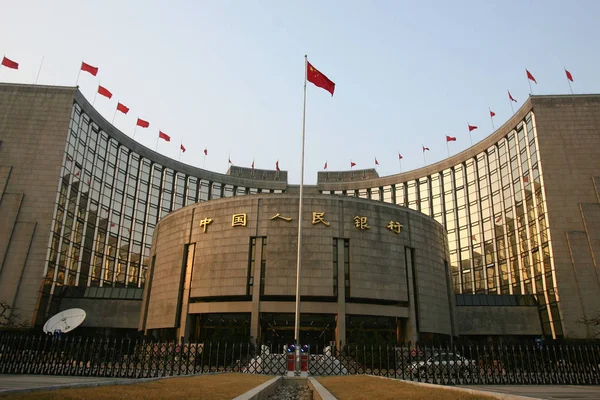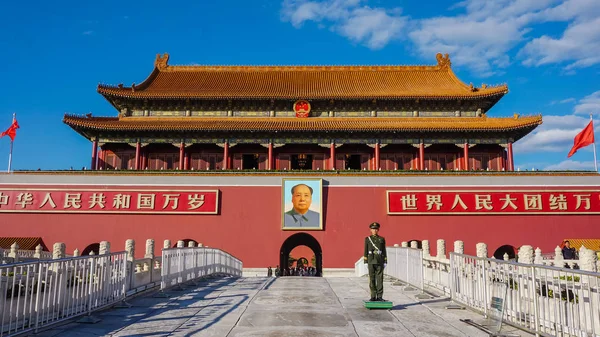News
The disappearance of a billionaire in China
The recent disappearance of Chinese technology industry dealmaker Bao Fan, founder of China Renaissance Holdings, has led to increased interest in the phenomenon of vanishing billionaires in China. Bao's case is similar to others in which business leaders have gone missing for days before their companies announced that they were "cooperating in an investigation being carried out by certain authorities in the People's Republic of China". This lack of transparency regarding the government body carrying out the probe, the reason for it, and the individuals' whereabouts has become customary. Other notable figures who have gone missing in recent years include Alibaba boss Jack Ma.Bao's disappearance is part of a trend of business leaders and activists going missing in China, a sign that President Xi Jinping is tightening his control of the country's economy. The announcement of plans for a new financial regulatory watchdog during the National People's Congress has also been linked to this trend, with authorities seeking to close current loopholes in the financial services industry. Recent cases of Chinese citizens going missing have highlighted concerns about the control President Xi Jinping has over China's economy. In 2015, at least five executives disappeared, including Guo Guangchang, chairman of Fosun International, and two years later, Chinese-Canadian businessman Xiao Jianhua was taken from a Hong Kong hotel. Ren Zhiqiang, a billionaire real estate tycoon, vanished after criticising Mr Xi's handling of the pandemic and was sentenced to 18 years in prison on corruption charges. The most high-profile disappearing billionaire was Alibaba founder Jack Ma, who vanished in late 2020 after criticising China's financial regulators, and has not been seen in the country for more than two years. While some cases, such as Mr. Bao's, are widely publicized, there are also less-known instances of Chinese citizens going missing after participating in anti-government protests or human rights campaigns. This trend is seen as part of President Xi Jinping's effort to tighten control of China's economy. The government claims that the actions taken against some of the country's richest people are purely legal and aim to root out corruption. However, analysts suggest that Beijing wants to regain control over big business, particularly the tech industry, which grew in power under previous leadership. Centralizing control and authority over the economy has been a hallmark of Mr. Xi's governance style over the past decade. At the end, according to Paul Triolo, head of China and technology policy at Albright Stonebridge Group, Beijing's focus is on preventing big technology companies from developing their own brands and influence that would make them difficult to control and potentially go against Beijing's preferences. The Common Prosperity policy also emphasizes the importance of the rule of law and applies to everyone regardless of their wealth. The policy is aimed at addressing the widening wealth gap, which is considered a major issue that could undermine the Communist Party's position if not tackled. Growing inequality and pressure from ultra-leftists to move closer to the party's socialist roots are believed to be factors driving this policy.
Advertisement

The disappearance of Chinese tech industry leader Bao Fan has reignited concerns about “vanishing billionaires” in China. Bao, the founder of China Renaissance Holdings, is known for his dealings with major companies such as Tencent, Alibaba, and Baidu. He went missing for several days before his company announced that he was “co-operating in an investigation being carried out by certain authorities in the People’s Republic of China”. This follows a pattern of Chinese business leaders disappearing without explanation, including Alibaba’s Jack Ma. The lack of information about these disappearances has caused speculation about the government’s involvement and motives.
The case has drawn attention to a phenomenon of vanishing billionaires in China. Other notable cases include Alibaba boss Jack Ma, Fosun International chairman Guo Guangchang, and billionaire real estate tycoon Ren Zhiqiang. Mr Bao’s case is viewed as one of the ways that President Xi Jinping is tightening his control of China’s economy. In the latest financial overhaul, China is creating a new financial regulatory watchdog to oversee most financial sectors and address current loopholes caused by multiple agencies monitoring different aspects of China’s financial services industry.Mr. Bao’s case is just one of several where Chinese business leaders have disappeared without explanation. These disappearances have led to speculation about President Xi Jinping’s efforts to tighten his control over China’s economy. This comes amid announcements of the creation of a new financial regulatory watchdog to oversee most financial sectors in China, which authorities say will address current loopholes created by multiple agencies monitoring different aspects of the financial services industry.

There have been several cases in recent years, including that of Alibaba’s Jack Ma, who criticised China’s financial regulators and then disappeared. The Chinese government has insisted that these disappearances are on legal grounds and part of a pledge to root out corruption, but some observers suggest it is part of a wider attempt to bring more of the economy under President Xi Jinping’s control. This comes after decades of liberalisation which created a large number of multi-billionaires with considerable power. Now, there is a perceived move to bring that power back under government control.
Paul Triolo, head of China and technology policy at Albright Stonebridge Group, suggests that Beijing’s main focus is to prevent big tech companies from developing their own brands and influence, which may make it harder to control them and make them more likely to act against the government’s interests. The Common Prosperity policy aims to address the issue of growing wealth inequality in the country, which could threaten the Communist Party’s position if not dealt with. The policy is also meant to promote the rule of law and ensure that it applies equally to both the rich and poor. There is pressure from ultra-leftists to move closer to the party’s socialist roots.
The Chinese government’s approach to business, including the disappearances of billionaires and the Common Prosperity policy, may deter new business talent and undermine confidence in China’s financial markets and the economy as a whole. While President Xi Jinping has stressed the importance of the private sector to China, his crackdown on billionaires and widening control of the economy could have unintended consequences. Some experts warn that targeting tech billionaires risks putting pressure on future technology entrepreneurs, while others see the Common Prosperity agenda bleeding into financial services. The long-term impact of these measures on China’s economy remains uncertain.
Trending Topics

Sterling Ultra Classic card: Apply now!
Discover and learn now how to apply for the Sterling Ultra Classic Visa credit card! It offers payment flexibility and much more!
Keep Reading
Apply Heritage Bank Loan
Take control of your finances with a loan from Heritage Bank. With flexible payment options, expert support, and a range of loan options.
Keep ReadingYou may also like

GTBank World MasterCard: Apply now!
Get access to exclusive privileges with the GTBank World MasterCard. Enjoy a high credit limit, 24/7 customer support, airport lounge access.
Keep Reading
Apply Diamond Bank Loan
Elevate your financial situation with Diamond Bank. From loans and savings to investment and insurance, we have the financial products.
Keep Reading
Bank of Industry: Learn More
BOI provides capacity building and technical assistance to its clients to help them grow and succeed. See now!
Keep Reading